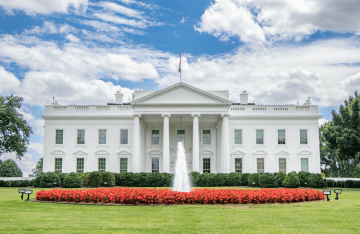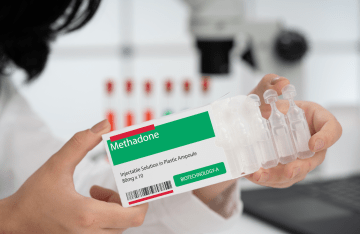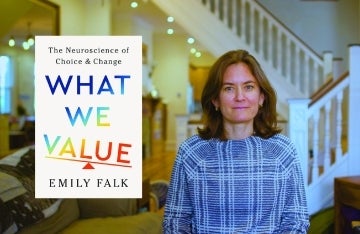Eight Ways To Prevent and Fight Health Misinformation, Backed by Psychological Science
A new report by Dolores Albarracín, Deen Freelon, and colleagues identifies effective ways to halt the spread of misinformation online, including debunking and “prebunking.”

With misinformation and disinformation running rampant online, many people struggle to differentiate between what is true and what is not. Whether it’s being fooled by an AI-created photo or misled by a spam email, we all are susceptible to misinformation in some way.
A new report from the American Psychological Association (APA) explains why it’s so easy to be fooled by misinformation and offers science-backed methods to prevent and combat the spread of misinformation online.
The report was written by seven experts on the psychology of misinformation from the U.S. and abroad, including two professors from the Annenberg School for Communication at the University of Pennsylvania — Dolores Albarracín and Deen Freelon.
Halting an “Infodemic” of Misinformation

For more than a year, the panel pored over the existing scientific literature to identify not only why and how misinformation spreads — looking at political beliefs, world views, and more — but also the psychological factors that make people susceptible to believing and spreading it.
They found that susceptibility to misinformation rises and falls depending on specific characteristics of the information and its viewer, something that Albarracín, the Alexandra Heyman Nash University Professor and director of the Science of Science Communication division of the Annenberg Public Policy Center has studied intensively.
For one, people are more likely to believe information from people or outlets whose political or social identities align with their own.

“The reason is biased processing, which in this case refers to how the identity of the communicating party influences how a message is evaluated,” says Freelon, the Allan Randall Freelon Sr. Professor of Communication. “People tend to be highly sensitive to the identity of the messenger, as much as if not more than the content of the message. When it comes to politics, we tend to evaluate messages that come from friendly sources more positively, whether they're true or false.”
The panel also found that people are more likely to believe and act on misinformation that is repeated, that provokes an emotional response, or criticizes their opposing political party, among other things.
Using this information, the authors offer eight recommendations for scientists, government officials, and the public to combat misinformation systematically. They are:
Avoid repeating misinformation without including a correction.
“Every time someone repeats misinformation, it increases the likelihood that someone else will hear and believe it,” Freelon says. “Some misinformation is relatively harmless, like the claim that bats are blind (they aren't), but other false claims can be quite harmful if believed and acted upon.”
Collaborate with social media companies to understand and reduce the spread of harmful misinformation.
Social media is a perfect vessel for the rapid dissemination of misinformation, Freelon says. They are open networks with low barriers-to-entry and lack the pre-vetting policies of legacy media. Adjusting these platforms to stop the spread of misinformation is vital.
“With social media, publication comes first, and false content can only be moderated after it has had a chance to spread,” he says. “Also, because misinformation can be controversial and attracts attention, social media companies have a perverse incentive to allow it to spread.”
Use misinformation correction strategies with tools already proven to promote healthy behaviors.
Efforts to correct misinformation should be paired with “well-developed behavioral change interventions informed by psychological principles that go beyond correcting misinformation,” Albarracín says. “Correcting misinformation alone does not increase vaccination uptake,” she says, “but increasing health care access does.”
The researchers also recommend formal education or community outreach to help people improve at judging the quality and accuracy of information and digital literacy.
Leverage trusted sources to counter misinformation and provide accurate health information.
When it comes to correcting misinformation, people are most likely to listen to corrections from trusted professionals, like physicians, nurses, psychologists, midwives, and educators, Albarracín says, especially if they are demographically similar to them.
The researchers recommend that governments use these trusted messengers to widely disseminate correct information.
Debunk misinformation often and repeatedly using evidence-based methods.
“Debunking is most effective when the correction is detailed and when the intervention elicits critical thinking,” says Albarracín. "Its effectiveness fades over time, so it should be repeated regularly."
Prebunk misinformation to inoculate susceptible audiences by building skills and resilience from an early age.
Prebunking aims to teach people to identify misinformation before they encounter it by providing information on how to recognize hoaxes or how falsehoods circulate.
One of the authors of the report, Sander van der Linden, professor of Social Psychology at the University of Cambridge, created a game called GO VIRAL! to teach teenagers and adults to identify strategies being used to spread misinformation about COVID-19.
Through prebunking, “exposure to a weak version of a falsehood builds resistance to future persuasion,” the co-authors write. “Prebunking should be the first line of defense to build public resilience to misinformation in advance.”
Demand data access and transparency from social media companies for scientific research on misinformation.
Currently, it is very difficult for researchers to gain access to social media data, despite the fact that misinformations thrives on these platforms. Social psychologists like Albarracín and Freelon are starting to gain access to data from platforms, like in this recent study analyzing Facebook and Instagram’s influence on elections, but the companies that run these platforms have been historically opaque.
Fund basic and translational research into the psychology of health misinformation, including ways to counter it.
The research on the psychology of health misinformation is rich, but limited, Albarracín, Freelon, and colleagues write. In order to fight misinformation thoroughly, researchers need the resources to test interventions through large-scale experiments.
Along with Albarracín and Freelon, authors include report editor Sander van der Linden (University of Cambridge), as well as Lisa Fazio (Vanderbilt University), Jon Roozenbeek (University of Cambridge), Briony Swire-Thompson (Northeastern University), Jay Van Bavel (New York University), and American Psychological Association staff members, Mitchell J. Prinstein and Derek J. Snyder.



